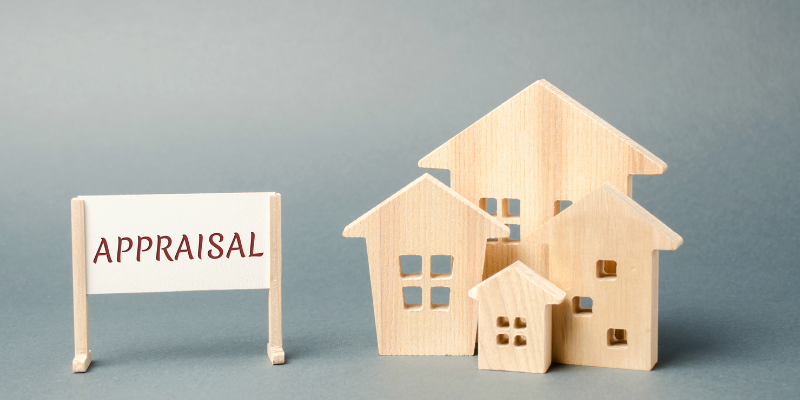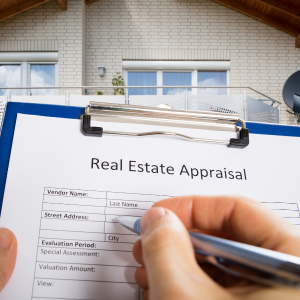
How Long After an Appraisal Can You Close in Washington?
In Washington, it can be hard to close on a house on time, and the process can be difficult. It’s essential to know what to do after the inspection to ensure the deal proceeds smoothly. Several key factors influence the time between appraisal and closing. This page provides more in-depth information about these topics. If you know what to expect before buying or selling, you can make informed plans and avoid delays you don’t want. We’ll go over each step in detail to provide you with a comprehensive understanding and ensure you have all the necessary information for a smooth and on-time close in Washington.
Key Highlights
- Appraisal reports establish market value and ensure loans align with the property’s worth.
- Factors like location, demand, and lender criteria influence appraisal timelines.
- Open communication and early document preparation can speed up the closing process.
- Delays often stem from appraisal contingencies, lender requirements, or title issues.
- Anticipating procedural hurdles and utilizing digital tools helps streamline the closing process in Washington.
Understanding the Home Appraisal Process in Washington
Do this very important thing if you want to buy a house in Washington. Learn how the review process works, and don’t let your goals get out of hand. Buying things can be both fun and stressful, but this will help you navigate the process more efficiently. The lender’s rules, the location of the house, and the state of the market could all alter this plan. If you want to close on your new home more quickly, it’s essential to understand what an evaluation is and what factors could cause it to take longer to prepare. This article provides more information about the evaluation method and how the time it takes may influence your apartment search.
What Does an Appraisal Involve?
If you want to buy or sell your home for cash in Washington, you need a home assessment. This indicates the current market value of the house. Lenders typically require this report to ensure that the loan amount is equal to the home’s value. Ultimately, this prevents them from offering more than the house is worth. To write the report, the inspector carefully examines the house, recording details such as its age, size, condition, and features, including garages, pools, and fireplaces.
The inspector checks out more than just the house itself. Additionally, they inspect the neighborhood and examine what other homes have recently sold in a similar style to the house. This study of different markets helps make sure the price is right for the current state of the market. The study examines the stability of the building, including any changes or improvements implemented, as well as any issues that have been identified. The location, such as in Washington state, is a significant factor in determining its value.
Obtaining the final report may take longer, depending on the level of activity and the effectiveness of communication among team members. An appraisal typically takes only a few days to complete. This is the last day for buyers to obtain the report, and if any issues are found, they may need to be addressed before closing. The results of the review may also alter the talks if they are lower than expected. This could mean that the deals and terms change as the deal goes forward.
Factors That Affect Your Appraisal Timeline

As with any service, the time required for an assessment can vary; therefore, buyers should be aware of potential delays. Market demand is a big one. When the real estate market is busy, appraisers may have to deal with numerous requests simultaneously, which can cause report delivery to take longer. There are also things about the land that matter. For example, it takes longer to value houses in rural areas of Washington state because there are fewer comparables and appraisers to choose from.
Seasonal changes can also impact or accelerate the review process. In the spring and summer, more people buy and sell houses, which can slow down the process and make inspectors busy. On the other hand, things tend to move faster during off-peak times because there are fewer distractions. Additionally, some lenders require more in-depth checks, which can prolong the process. The wait time will also be longer if problems or fixes found during the evaluation need to be looked at again.
The process can take longer if the report identifies issues that require further discussion or if the original terms need to be revised. Prepare your paperwork in advance, consult with your loan and real estate agents, and promptly address any issues that have been brought to your attention. These things can all help you avoid delays. If you complete these steps, the evaluation process will proceed more efficiently, making it easier to close on your Washington state home purchase.
The Appraisal Process in Washington State
People in Washington State who want to buy a house need to know how inspections work. This process ensures that houses are valued correctly, which affects the time it takes to value a home and determines the next steps to take to obtain a mortgage. A detailed report is made in Washington that examines the land’s condition and its current state. You can better guess when the ending process will start if you know how long it usually takes and if there are any breaks. What can you expect from evaluation timelines? What changes these timelines? How can you speed up the appraisal process?
Average Timeframes for Home Appraisals
For most people in Washington State, an exam takes between a few days and a few weeks. This is based on the house and the market. When the investor receives the estimate as part of the loan approval process, the process begins. The initial inspection of the property typically takes only one or two days. Creating the full report, which examines the house’s condition and its similarities with other homes of a similar nature, may take longer as a result.
Place is very important when it comes to time. It may take longer to set up an appraisal in a town with a high population density than in a rural area where there are fewer inspectors available. The time of year also changes the process. In the spring and summer, when people are most likely to make purchases, judges may struggle to complete their work on time. On the other hand, you might be able to finish faster when it’s not busy.
The appraiser’s workload and any issues that arise during the review can also impact the schedule. These problems may be differences that require further research or appraisal contingencies that haven’t been addressed yet. It may take longer if additional checks or forms need to be completed for the loan. It will be easier for buyers in Washington State to navigate the evaluation stage and stay on track to close if they are aware of these key factors and maintain open communication with both lenders and evaluators.
Sell My House Fast For Cash can help by guiding you through the process and ensuring a smoother, stress-free closing experience.
How Does an Appraisal Impact the Closing Date?
Anyone in Washington state who is buying a home needs to know how an appraisal changes the closing date. An evaluation is a crucial part of obtaining a mortgage, as it determines the property’s market value and ensures that the loan amount aligns with that value. After the appraisal is completed, several factors can either expedite or delay the closing date. A smooth transfer from the appraisal stage to finalizing the deal is important for a quick closing. We will discuss the typical timeframe from appraisal to closing, as well as common reasons for delays that may impact your closing date.
Expected Timeline from Appraisal to Closing

Anywhere from one to several weeks can pass between the appraisal and the closing in Washington. It depends on the loan and the real estate process. Lenders verify that all loan requirements are met after reviewing the evaluation report. After that, they give the “clear to close.” The speed at which this process proceeds will depend on how quickly the lender reviews the application and agrees to the mortgage based on the estimate. Sometimes this step is easy if the house is worth what it’s being sold for and there are no issues.
If you want to sell your Tacoma, WA, house faster, you need to be prepared and communicate clearly to stay on schedule. Ensure you have all necessary information on hand and act promptly after completing any required checks. Before beginning the loan process, consult with your lender to understand their specific requirements. The real estate market in Washington is constantly evolving, making it crucial to stay informed. Maintain regular contact with both lenders and assessors to keep the process smooth and efficient. Addressing issues promptly helps identify and resolve any “bugs” in the process, ensuring everything stays on track.
Changes in the seasons and problems with ratings can both cause the time to change. When there is a lot to do, such as in the spring and summer, this process may take longer. Before closing, any issues with the check must also be resolved. People who want to buy or borrow money can use these words. For buyers, the process from appraisal to close can proceed more quickly and easily if they are prepared, address problems promptly, and collaborate effectively with everyone involved.
Common Reasons for a Delay in Closing
In Washington, closings are often pushed back because the estimates take longer than planned. If there are breaks between the end of a review and getting the full report, it could take longer. This is particularly important if the people evaluating the property are busy or if there are unique aspects about it that require extra attention. It could take even longer to close if the appraised value differs significantly from the expected price. This is because the loan may need to be renegotiated or changed.
Giving money can take a while, too. Lenders need time to read the buyer’s evaluation report and the offer letter. The process can take longer if papers are missing or not in the right place. Ensure that all your information is ready ahead of time to avoid any last-minute issues. The people who are giving out loans might need more checks or proof of value.
It may also be more challenging to close if there are issues with the title or the law. Before moving forward, you must address any outstanding debts, property ownership issues, or zoning and compliance concerns that remain unresolved. If buyers, sellers, lenders, and title companies cannot communicate effectively, the process can also take longer than planned. Buyers in Washington can resolve problems more quickly if they stay in touch, meet their goals, and address issues promptly. This might make it easier to close the deal.
Efficiently Managing Your Closing Timeline in Washington
In Washington’s tough real estate market, you need to keep a close track of your closing dates to make sure everything goes smoothly from the appraisal to the closing. Several steps can be taken to expedite the closing process and avoid potential delays. Gathering all the necessary information, communicating clearly, and planning ahead for potential issues that may arise during the closing phase are all crucial steps to take. These tips will help you navigate closing conditions without any issues, ensuring that the entire home-buying process proceeds smoothly.
Strategies to Speed Up the Closing Process

You need to plan ahead and take the necessary steps to expedite the closing process. Reviews and checks can occur at any time, provided you plan them in advance. Delays can happen if you wait too long. In Washington, DC, many people buy and sell homes, so the time it takes to grade can increase. You can keep your close on time, even if the market moves quickly, by booking these services early.
Also, make sure you stay in touch with your source. Ensure they have everything they need to quickly review the report by checking in with them frequently. Find out ahead of time what the lender’s rules are. This will help you avoid shocks that could slow down the process. Some people find it faster to review and make changes to digitally shared and organized documents. This is especially true if more than one person is used to it.
Another important thing to do is to be ready for what might happen during the review. Being prepared for new talks that may arise if property prices change or if unusual discoveries are made is important. This will help you stick to your goals. Plan ahead, speak clearly, utilize technology, and prepare early to ensure the process of buying a home in Washington proceeds quickly and smoothly. This will help them avoid trouble and make it easier for them to purchase a house. For guidance or support at any stage of the process, contact us, and we’ll be happy to help.
Preparing Documents to Avoid Delays
Submitting papers late can be costly, so ensure you have all the required documents ready by the end of the term. For Washington, this means preparing everything well in advance, especially since each state has its own regulations, lending requirements, and property standards. It’s also essential to be aware that a seller might refuse to make required repairs after the inspection, which makes having complete and updated paperwork even more crucial. Key documents should always be up-to-date and easily accessible.
Documents such as proof of income, credit records, work experience, and letters of pre-approval for a mortgage are important pieces of financial documentation. Licenses and social security cards need to be up-to-date and match another record for each person. Also, verify that all necessary papers for the property are in order. This includes reports from inspections, promises to fix things, and conditions for rating. There won’t be any last-minute issues that cause the close to take longer than planned.
In Washington, you may also need green and zoning papers. This is particularly important for older homes or those located near natural areas. With digital files and a schedule, you can keep track of when things are due and their current status. This helps everyone stay on track and up to date. If the sellers’ papers are ready early and easily accessible, the closing can proceed more quickly and without any problems.
Looking to sell a house in Washington? Sell My House Fast For Cash makes it simple. We buy homes in any condition, so you don’t need to clean, repair, or renovate. Get a fair cash offer and enjoy a fast, hassle-free closing with no hidden fees or delays. Call (866) 824-3222 today for a no-obligation cash offer and turn your home sale into a fresh start!
FAQs:
What role does an appraisal play in the home-buying process?
An appraisal establishes the market value of a property, ensuring that the loan amount aligns with the property’s worth. It is critical for both buyers and lenders as it safeguards against over-lending.
How long does the appraisal process usually take in Washington?
The appraisal process can typically take from a few days to a few weeks, depending on factors such as demand, location, and the property’s unique characteristics.
What factors can influence the timeline from appraisal to closing?
Factors affecting this timeline include lender requirements, appraisal contingencies, seasonal demand, and the time required for document preparation. Thorough preparation and open communication with lenders can help avoid delays.
What are common reasons for closing delays in Washington?
Common causes of delays include appraisal-related issues, lender underwriting delays, title discrepancies, and miscommunications among involved parties. Proactive management of these factors can mitigate delays.
What steps can be taken to ensure a smooth closing process?
To ensure a smooth closing, prepare all necessary documents in advance, communicate consistently with your lender, utilize digital tools to manage paperwork, and anticipate potential appraisal-related issues.
Helpful Washington Blog Articles
- Refinance A House After Divorce in Washington
- How to Sell a Condemned House in Washington
- Can the Seller Back Out of a Contract?
- Selling a House with Termite Damage in Washington
- Sell a House with a Code Violation in Washington
- Understanding FSBO Costs in Washington
- How to Sell a Hoarder House in Washington
- How Long After an Appraisal Can You Close in Washington?

